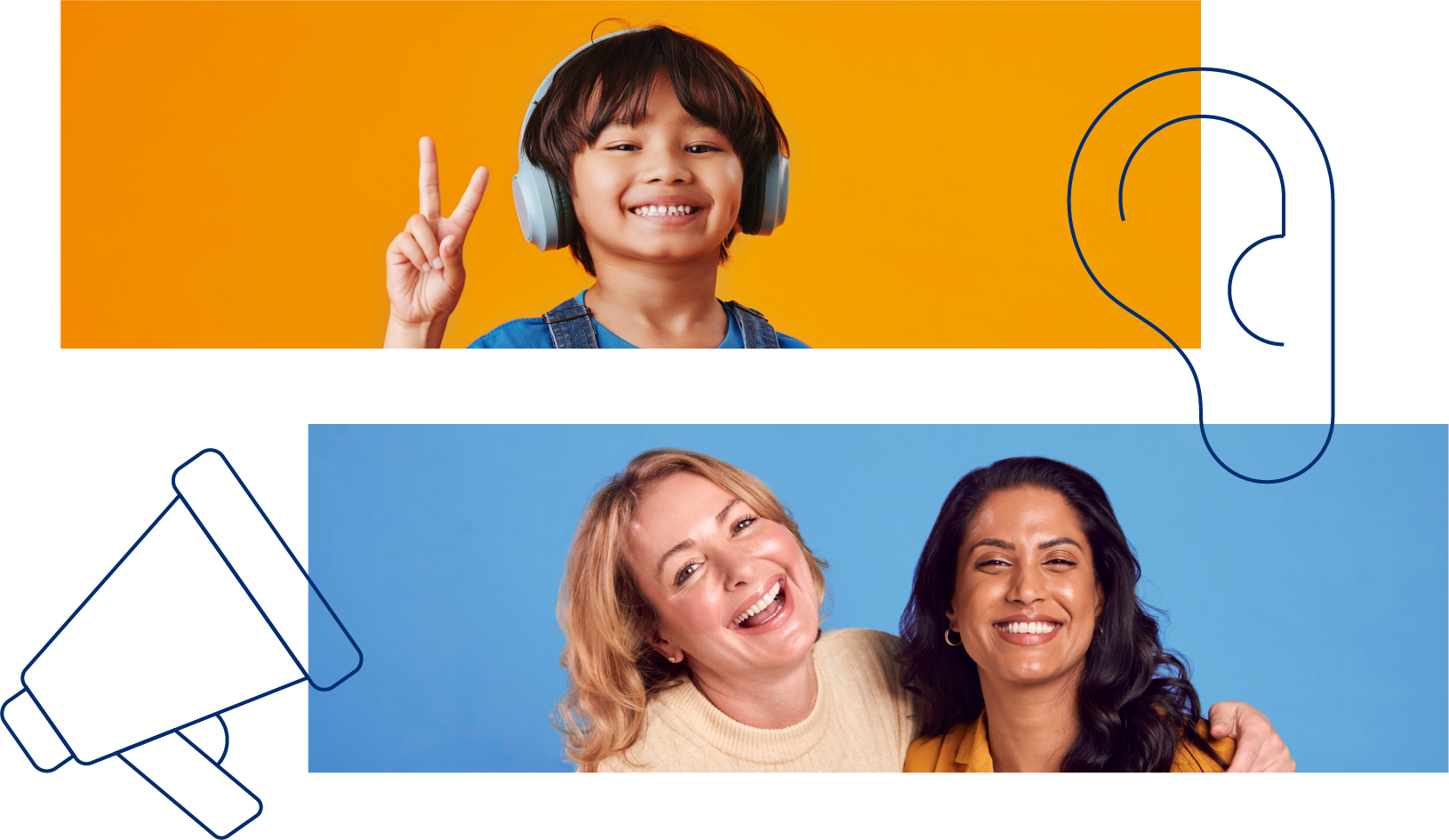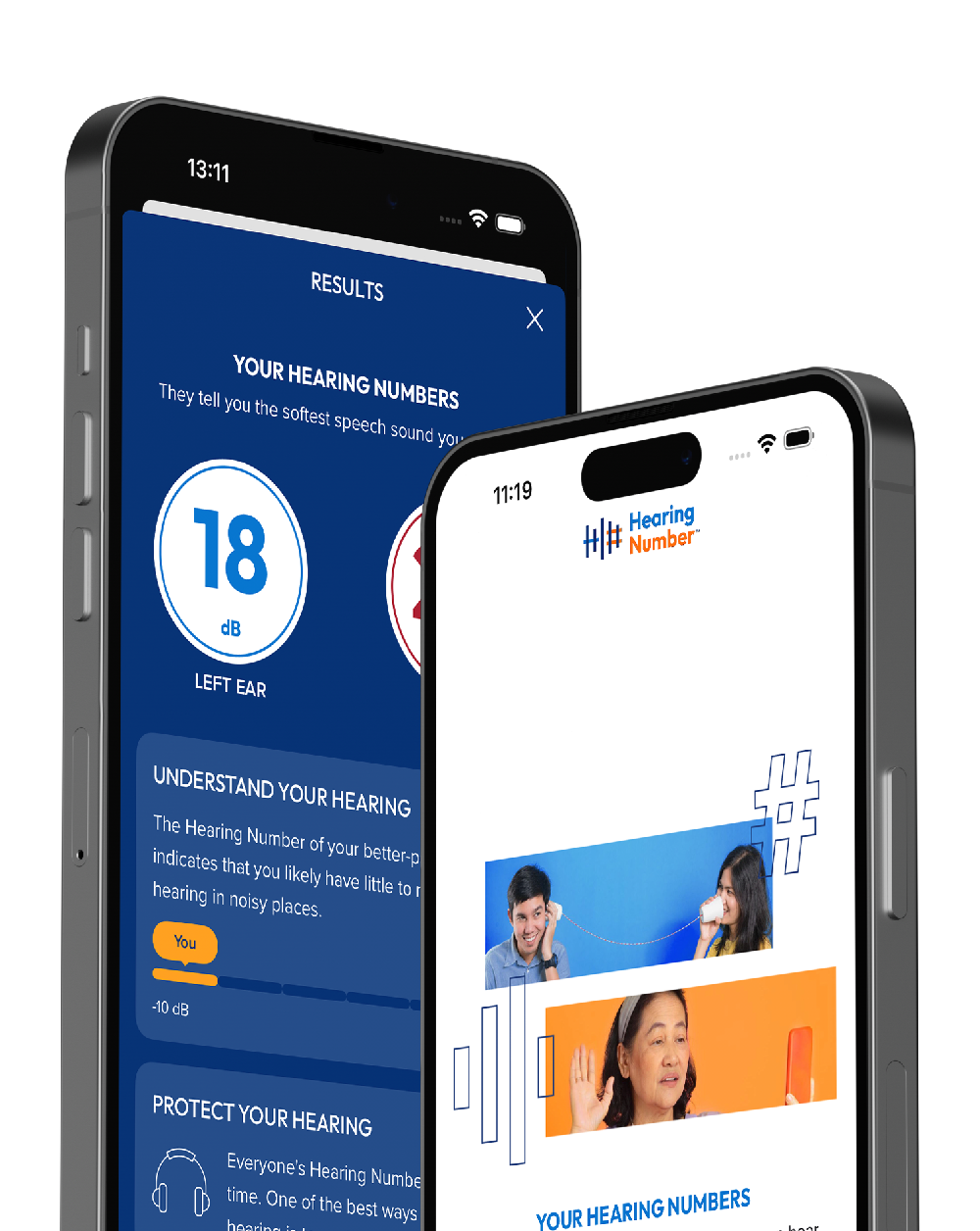Use Your Hearing Numbers to Hear Better
Explore by Hearing Number range in your better-performing ear.
Typical Hearing Experience
In Quiet:
No problems hearing sounds
In Background Noise:
No or minimal problems hearing conversational speech
Strategies
Communication strategies, Everyday technologies, OTC hearing aids
Typical Hearing Experience
In Quiet:
No problems hearing conversational speech
In Background Noise:
Difficulty hearing conversational speech
Strategies
Communication strategies, Everyday technologies, OTC hearing aids, Prescription hearing aids
Typical Hearing Experience
In Quiet:
Difficulty hearing conversational speech
In Background Noise:
Difficulty hearing and taking part in conversation
Strategies
Communication strategies, Everyday technologies, OTC hearing aids Prescription hearing aids
Typical Hearing Experience
In Quiet:
Difficulty hearing conversational speech; can hear raised voices
In Background Noise:
Difficulty hearing most speech and taking part in conversation
Strategies
Communication strategies, Everyday technologies, OTC hearing aids, Prescription hearing aids
Typical Hearing Experience
In Quiet:
Cannot hear most conversational speech; difficulty hearing and understanding raised voices
In Background Noise:
Extreme difficulty hearing speech and taking part in conversation
Strategies
Communication strategies, Everyday technologies, Prescription hearing aids, Cochlear implants
Typical Hearing Experience
In Quiet:
Extreme difficulty hearing raised voices
In Background Noise:
Cannot hear conversational speech
Strategies
Communication strategies, Everyday technologies, Prescription hearing aids, Cochlear implants
USE YOUR HEARING NUMBERS TO HEAR BETTER
Being able to understand others depends on your hearing as well as:
- How loud the environment is
- How familiar you are with the speaker
- How quickly your brain processes sound
Communication strategies and everyday technologies can help you hear better, no matter what your Hearing Numbers are. The higher your Hearing Numbers are, the more communication strategies and technologies you need.

Communication Strategies
(For All Hearing Numbers)
Get close and face to face
Be about arm’s length from the person you want to hear. Seeing the person’s face can help your brain process what they’re saying.
Turn down background sounds
Lower the volume of the TV or music, if possible, or move to a quieter room. Competing sounds make it harder to understand the voices you are trying to hear.
Everyday Technologies
(For All Hearing Numbers)
Turn on closed captioning
Use captioning or subtitles so your brain won’t have to concentrate as hard to catch the dialogue.
Customize your technology
Search your smartphone’s accessibility features to explore ways to tailor the sound to your hearing so that it is easier to hear phone calls and listen to music.
Hearing Technologies
Over-the-counter, or OTC, hearing aids
OTC hearing aids are available in some countries. You can purchase them online and at major retail chains. They are also incorporated into some wireless earbuds.
Prescription hearing aids
You can get prescription hearing aids through a hearing care professional. They will assess your hearing needs and help you use these technologies.
Cochlear implants
Cochlear implants are for people who have Hearing Numbers that are generally higher than 60 dB and who do not benefit enough from a hearing aid. Getting a cochlear implant involves a minor surgery performed by an otolaryngologist, or ENT.
Protect Your Hearing
Your Hearing Numbers can increase temporarily after exposure to loud sounds. If you have ever been exposed to a lot of loud sounds, like music at a concert, you may have noticed it is harder to hear afterward. The good news is that your hearing is likely to get better after a few days. But those exposures to loud sounds add up over time.
If you can’t move away from or turn down loud sounds, use hearing protection, like earplugs or earmuffs. A good rule of thumb is that if you are somewhere loud enough that you need to raise your voice to be heard, use hearing protection.
